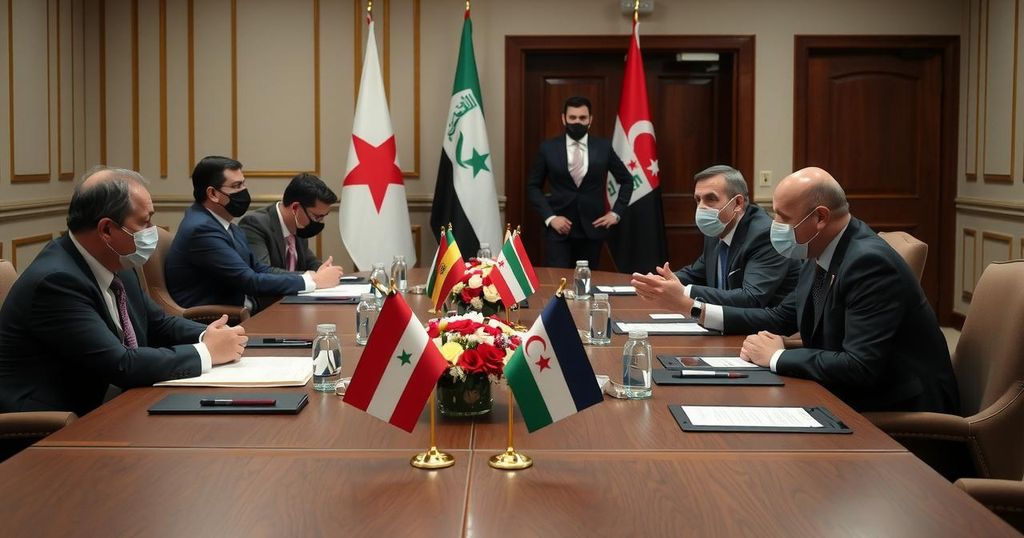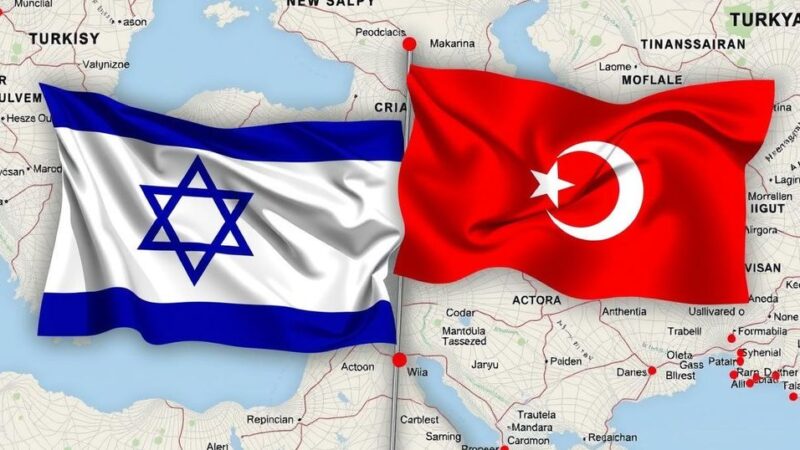Officials from the US, Turkey, and Arab nations met in Jordan to support a peaceful transition in Syria, emphasizing an inclusive government while expressing concerns over terrorism and sectarian divisions. Notable discussions included direct contacts with rebel group HTS and the need for regional unity, absent representatives from Assad’s supporters Iran and Russia.
A coalition of officials from the United States, Turkey, and several Arab nations convened in Aqaba, Jordan, to express their commitment to a peaceful transition in Syria. Jordan’s Foreign Minister Ayman Safadi stated that regional leaders are averse to Syria falling into disorder. US Secretary of State Antony Blinken acknowledged direct communications with the rebel group Hayat Tahrir al-Sham (HTS), which played a critical role in dismantling the regime of President Bashar al-Assad.
A joint statement emphasized the importance of establishing an inclusive Syrian government that honors minority rights and does not harbor terrorist factions. During the discussions, Iraqi Foreign Minister Fuad Hussein voiced apprehensions regarding Syria’s trajectory, drawing parallels to the destabilization of Libya post-Gaddafi. Turkish Foreign Minister Hakan Fidan stressed the necessity of preserving and reforming existing Syrian institutions while ensuring that terrorist groups do not exploit the transition, urging a collaborative approach to avoid past errors.
HTS, the dominant rebel faction, expressed intentions for an inclusive governance model; however, its history of violent extremism has raised skepticism about its sincerity. Secretary Blinken confirmed ongoing discussions with HTS concerning various issues, including the case of American journalist Austin Tice, despite the US maintaining HTS’s designation as a terrorist organization. Notably absent from the Jordan conference were representatives from Syria and the key backers of Assad, Iran and Russia, which underscored the challenging dynamics influencing Syria’s future. The talks underlined the necessity for internal and external unity to foster a semblance of stability in the wake of the recent upheaval.
The civil war in Syria has resulted in a protracted humanitarian crisis, drawing the involvement of various international players, with ongoing disagreements over the future governance of the country. This recent summit in Jordan reflects rising concerns among neighboring countries and global powers about the stability of Syria and the risk of sectarian division. The focus is on finding a governance model that represents the diverse demographics of Syria while safeguarding against the resurgence of violent extremism that has plagued the region. The intricate geopolitical landscape involves ensuring that external influences do not further destabilize Syria’s already fragile situation.
The commitment of the US, Turkey, and Arab states to a peaceful transition in Syria represents a pivotal moment in the ongoing conflict. The emphasis on inclusive governance and preventing the exploitation of the transition period by terrorist factions suggests a potential path toward greater stability. However, the absence of Syrian representation and key supporters of the Assad regime highlights the complexities yet to be resolved. Moving forward, sustainable peace in Syria will require cohesive efforts from both within and beyond its borders.
Original Source: www.bbc.com







